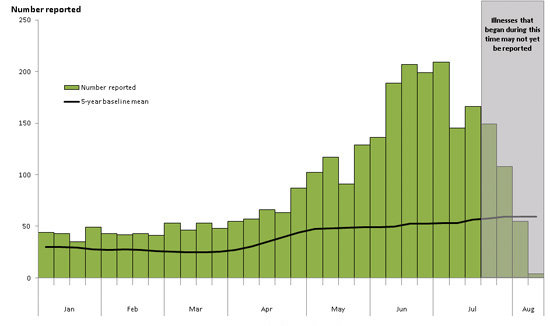Never enough about S.510. Today’s the day!
Update 3:30 p.m. Final Senate vote postponed until 9:00 a.m. tomorrow!
Today, the Senate is supposed to deal—at last—with S.510, the FDA Food Safety Modernization Act. Here’s what I’m told is likely to happen (it gives me a headache just to think about it):
- 4:00 pm EST: Senate resumes discussion of S.510.
- 6:30 pm: Senate proceeds to cloture vote on the substitute amendment to S.510.
- Cloture is invoked.
- Post-cloture and upon the use or yielding back of the time allotted in the agreement (1 hour for motions re: 1099 and 4 hours for Coburn motions), the Senate will proceed to vote on the motions in the following order: (1) Johanns (1099 forms–the repeal on a tax burden on small businesses), (2) Baucus (1099 forms), (3) Coburn (earmarks), (4) Coburn (substitute)
- Once those are disposed of, Senate votes on passage of the bill, as amended.
- Observers expect all of this to last well into the night.
- Note: Because all of the amendments are offered as motions to suspend the rules, they require a 2/3rds vote. Final passage requires 51. Cloture requires 60.
And in case your mind is still not made up about how this should go, take a look at today’s commentaries:
Michael Pollan and Eric Schlosser have an op-ed in the New York Times: A Stale Food Fight:
In the last week, agricultural trade groups, from the Produce Marketing Association to the United Egg Producers, have come out against the bill, ostensibly on the grounds that the small farms now partially exempted would pose a food safety threat. (Note that these small farms will continue to be regulated under state and local laws.) It is hard to escape the conclusion that these industry groups never much liked the new rules in the first place. They just didn’t dare come out against them publicly, not when 80 percent of Americans support strengthening the F.D.A.’s authority to regulate food.
And FoodSafetyNews, ever on the job, has three pieces on the bill today (I’m referred to in a couple of them):
- A summary of where the bill stands to date
- An opinion piece by Chuck Jolley demolishing the myths about the bill
- An opinion piece, “Protect Small Farms,” by Roland McReynolds
With a little luck, the Senate will pass the bill tonight, large and small farms will comply with its provisions, and our food supply will be safer as a result. One can always dream.
Additions: a few more editorial comments, all in favor of passing S.510.
The Sacramento Bee editorial (11-25)
The Minneapolis Star Tribune (11-27)
The Bemidji (MN) Pioneer (11-28)
The Baltimore Sun (11-28 and the 29th in some editions)
New York Times editorial (11-16)
USA Today (11-23)
Las Vegas Sun (11-23)
Lexington (KY) Herald Leader (11-23)


